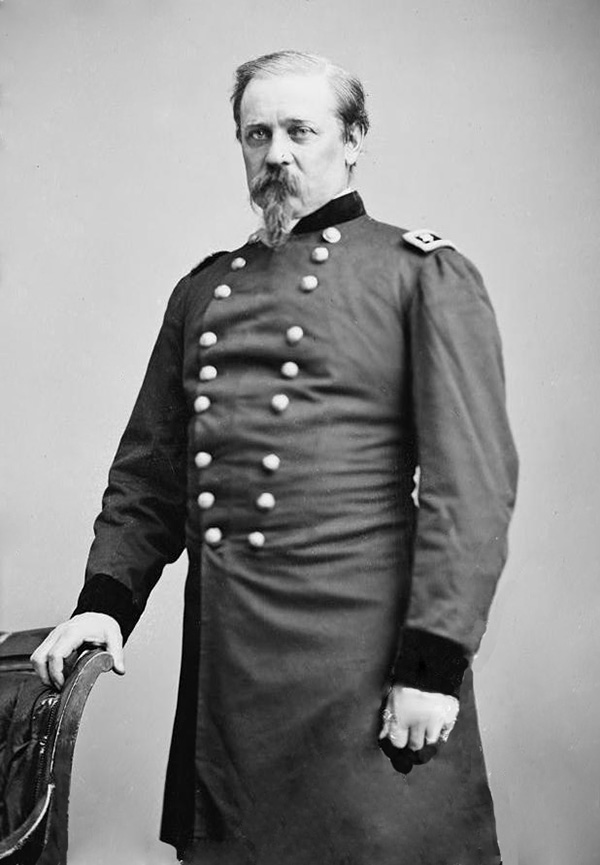William Farrar 'Baldy' Smith (February 17, 1824 - February 28, 1903) was an American military officer and a Union general during the American Civil War. Born in St. Albans, Vermont, Smith entered the United States Military Academy at West Point in 1841 and graduated four years later fourth in his class of forty-one cadets. Upon graduating, Smith was appointed a brevet second lieutenant and assigned to the Corps of Topographical Engineers. He spent his years in the Corps conducting surveys of the Great Lakes, Texas, Arizona, Florida, and much of Mexico. He also worked for the lighthouse service and twice served as an assistant mathematics professor at West Point. During the American Civil War, Smith had a career full of great successes and incredible failures. He was at the First Battle of Bull Run on the staff of Brigadier General Irvin McDowell, and soon was recognized for gallantry at the Battle of White Oak Swamp in the Seven Days Battles. Smith also led his division with 'conspicuous valor' during the Battle of Antietam. Due to his accomplishments, Smith was promoted to command of the VI Corps of the Army of the Potomac when his corps commander was reassigned to a superior command. This, however, was disastrous for Smith and escaped being being dismissed by General Burnside, along with several other senior officers, when President Lincoln countermanded Burnside's order and, instead, removed him from command. Smith, having made the decision to stay in the Army, nonetheless faced the reality that the Senate did not confirm his promotion to major general, meaning that he reverted back to the rank of brigadier general and took over command of a division of militia in Pennsylvania. It was with this militia unit that Smith repelled an attack by Major General J.E.B. Stuart during the Gettysburg Campaign. In October 8163, Smith was reassigned to duty as the chief engineer of the Army of the Cumberland, and soon would be the chief engineer of the Military District of the Mississippi. Smith was responsible for opening what became known as the 'Cracker Line' to supply besieged Union troops in Chattanooga, which won him his promotion of major general in March 1864. During the Overland Campaign of 1864, Grant assigned Smith to common the XVIII Corps in the Army of the James. In this command he led his troops in the Battle of Cold Harbor and in the first operations against Petersburg. At Petersburg, Smith again suffered a setback, when he waited too long to seize an opportunity to attack the city, which cost the Union Army a chance to shorten the war by nearly a year. He was relieved of command in July 1864, and spent the rest of the war on 'special duty'. After the was was over, Smith resigned from the volunteer army in 1864 and the regular army in 1867. He was President of the International Telegraph Company from 1864 until 1873 and served on the board of police commissioners of New York City from 1875 until 1881. After 1881, Smith began working on civil engineering projects in Pennsylvania, and died in Philadelphia in 1903.


